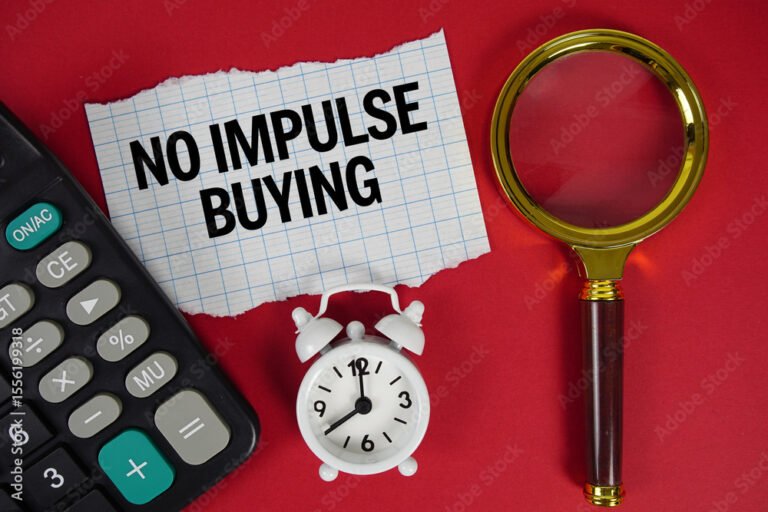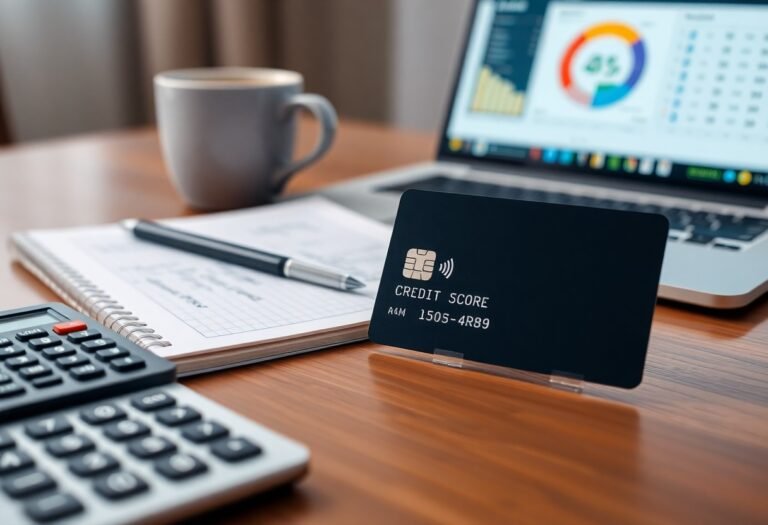How To Improve Credit Score With Credit Cards
This guide will help you boost your credit score using your credit card wisely. You’ll discover practical tips that I’ve used to maintain a healthy credit profile, ensuring your financial future looks bright. To start, it’s important to understand, get, and improve your credit score, as this knowledge sets the foundation for making informed decisions. Let’s dive in and explore how simple actions with your credit card can make a big difference!
Key Takeaways:
- Make timely payments on your credit card to establish a positive payment history.
- Keep your credit utilization ratio low by using only a small percentage of your available credit.
- Maintain older credit card accounts to improve the average age of your credit history.
- Limit the number of new credit applications to avoid multiple hard inquiries on your credit report.
- Regularly check your credit report for errors and dispute any inaccuracies you may find.
The Mechanics of Credit Scores: How Credit Card Usage Impacts Your Rating
Understanding how your credit card usage affects your credit score is vital for managing your finances effectively. A credit score is calculated based on various factors, each weighted differently, influencing your overall rating. Credit card activity plays a significant role, and by intentionally managing it, I can raise my score to secure better lending opportunities in the future.
Breaking Down the Credit Score Components
Credit scores typically range from 300 to 850, with five main components affecting them: payment history (35%), amounts owed (30%), length of credit history (15%), new credit (10%), and types of credit used (10%). Each piece is vital, and by understanding their impact, I can tailor my credit behavior to improve my score effectively.
The Role of Credit Utilization and Payment History
Credit utilization and payment history are pivotal components of your credit score, accounting for a significant portion of the overall calculation. Keeping your credit utilization under 30% and ensuring timely payments can greatly enhance your score. It’s the perfect way to demonstrate financial responsibility and reliability to lenders, making me a more attractive candidate for credit options.
With credit utilization, for instance, if I have a $10,000 credit limit, I should aim to keep my outstanding balance below $3,000 to maintain a good utilization ratio. Each month, I focus on making more than the minimum payment on my credit cards to avoid high interest and to showcase a positive payment history. Consistency with this strategy not only improves my score, but it also opens up better interest rates for future loans. By keeping an eye on both utilization and payment history, I’m taking proactive steps toward a healthier credit profile, leading to more financial opportunities in the long run.
Strategic Credit Card Usage: Tips for Building Your Score
Mastering the art of credit card usage can significantly enhance your credit score. Here are some strategies to consider:
- Use your credit card regularly but responsibly.
- Pay off your balance in full each month.
- Limit applications for new cards to one every six months.
- Keep old accounts open to maintain your credit history.
Knowing how to strategically utilize your credit card can make a positive difference in your score.
Keeping Your Credit Utilization Low
Credit utilization—the ratio of your current credit card balances to your limit—is a significant factor in your score. Keeping this ratio below 30% is commonly recommended, but striving for 10% or lower will yield even better results. I find that regularly monitoring my spending and making extra payments can help ensure I stay within this optimal range.
Payment Strategies: Timing and Methods that Matter
Payment habits can profoundly impact your credit score. Paying your bill on time each month is fundamental, but scheduling payments strategically can further elevate your score. By paying multiple times throughout the month, I can effectively lower my credit utilization, which looks favorable to creditors and score models. Delving deeper into that concept, I’ve adopted a bi-weekly payment strategy where I divide my total monthly bill and make smaller payments every two weeks. This approach mitigates the risk of reaching high utilization just before the billing cycle ends. Additionally, setting up reminders or auto-pay can prevent missed payments, which can harm your score significantly. By prioritizing consistent, on-time payments and managing my balances actively, I’ve seen tangible improvements in my credit score.
Applying for New Credit Cards: A Double-Edged Sword
Venturing into the world of new credit cards can be a balancing act. On one hand, acquiring new accounts may help increase your credit limit and diversify your credit mix, both of which can positively influence your score. However, there’s also the risk of negatively impacting your credit score if you’re not careful with new applications or manage the accounts poorly.
The Pros and Cons of New Accounts
Pros and Cons
| Pros | Cons |
|---|---|
| Increased credit limit can lower your utilization ratio. | Hard inquiries can temporarily lower your score. |
| Diverse account types can enhance your credit mix. | Risk of overspending on new cards. |
| Potentially better rewards and benefits. | Annual fees can add to your cost. |
| Opportunity to build credit history. | May lead to account management challenges. |
| Can help if your existing cards are maxed out. | Unfavorable terms can harm your finances. |
Timing Your Applications for Maximum Benefit
Strategic moments for applying can make all the difference in how new credit cards affect your score. Ideally, align your applications during periods of financial stability, when your credit utilization is low and you have recently paid off debts. This timing helps mitigate immediate score drops from hard inquiries while maximizing the potential benefits of new accounts.
Applying right after a significant financial change, like paying off a large balance or receiving a salary increase, could work in your favor. Lenders often assess your recent credit activity and overall financial health before approving applications. Consider spacing out applications to avoid multiple inquiries within a short timeframe, as this can prevent the cascading negative effects on your score, especially if you have limited credit history. By being strategic, you ensure that your new credit cards serve as assets rather than liabilities in your credit journey.
Monitoring and Maintaining Your Progress: Tools and Techniques
Tracking your credit progress is a game-changer in achieving a healthier credit score. Utilizing a combination of available tools and techniques can empower you to stay on top of your financial journey and make informed decisions that directly influence your credit health. From monitoring services to checking your credit report regularly, maintaining awareness of your credit status will help you navigate any potential pitfalls along the way.
Utilizing Credit Monitoring Services Effectively
Credit monitoring services provide real-time updates on changes to your credit report, alerting you to potential issues before they spiral out of control. By signing up for a service, you can keep tabs on your credit utilization, payment history, and new accounts that may affect your score. Many services also offer credit score tracking, providing insights into how your financial habits influence your overall rating.
Regularly Reviewing Your Credit Report for Errors
Reviewing your credit report for inaccuracies can unveil hidden issues that impact your score negatively. Errors can stem from mistaken identities, outdated information, or clerical mistakes. By routinely examining your report, you ensure that you’re only being judged on the accurate history of your credit behavior, rather than being penalized for errors outside of your control.
When plunging into your credit report, take a moment to look for any inaccurate account statuses, such as late payments that were actually made on time. It’s also a good idea to verify account balances and ensure all accounts listed are indeed yours. If errors do pop up, be proactive in disputing them with the credit bureaus. You can provide supporting documentation and typically get the inaccuracies corrected, potentially boosting your score right away. Regular reviews empower you to maintain your credit integrity and ensure that you are always working with accurate information.
Expert Tips to Accelerate Credit Score Improvement
Improving your credit score doesn’t have to be a slow process. By following expert tips, you can enhance your score more rapidly. Consider these strategies to jumpstart your journey:
- Pay your bills on time every month.
- Keep your credit utilization below 30%.
- Request a credit limit increase on your cards.
- Debate whether to become an authorized user on someone else’s account.
Assume that you leverage these tips consistently for quicker results.
The Power of Secured Credit Cards
Secured credit cards offer a practical solution for those aiming to build or rebuild their credit scores. They require a cash deposit, which acts as collateral and typically becomes your credit limit. By using a secured card responsibly—making purchases and paying off the balance in full each month—you signal to creditors that you can manage credit wisely. Over time, this responsible usage can lead to credit score improvements, paving the way for transitioning to an unsecured card.
Credit Building Products You May Not Know About
Many individuals overlook various credit building products that can enhance their credit scores. These include credit-builder loans, which work like traditional loans but are reversed; the funds are held in an account until the loan is repaid. On-time payments help establish a positive credit history. Another option is rental payment services, which report your on-time rent payments to the credit bureaus. Using these products strategically can create a solid base for elevating your credit score. Utilizing tools like credit-builder loans or rental payment services can provide an often-untapped pathway to better credit. A credit-builder loan allows you to save while building credit because you’ll make manageable payments that are reported to bureaus. Similarly, a rental payment service can assure that your timely rent reflects positively on your credit profile. If you’re seeking innovative ways to bolster your credit, these options could be just what you need.
Summing up
Summing up, improving your credit score with a credit card can be an enjoyable journey! I focus on making timely payments, keeping my balances low, and occasionally using my card for small purchases. By maintaining a positive credit utilization ratio and regularly checking my credit report for errors, I can boost my score over time. It feels great to see that progress, and you can take these simple steps too!
FAQ
Q: How can I use my credit card to build my credit score?
A: To build your credit score using a credit card, start by making regular purchases on your card. Consistently pay your full balance each month to avoid interest charges and demonstrate responsible usage. Additionally, ensure you keep your credit utilization (the ratio of your credit card balance to your credit limit) below 30%. This will show lenders that you can manage your credit effectively.
Q: Will applying for multiple credit cards negatively impact my credit score?
A: Yes, applying for multiple credit cards within a short period can have a negative effect on your credit score. Each application typically results in a hard inquiry, which can lower your score temporarily. It’s advisable to space out applications and only apply for credit when necessary.
Q: What is the importance of timely payments on my credit card?
A: Timely payments are necessary for maintaining and improving your credit score. Payment history accounts for a significant portion of your credit score calculation. Making payments on or before the due date signals to creditors that you are a responsible borrower, thereby enhancing your creditworthiness.
Q: Can using a credit card for everyday purchases help my credit score?
A: Yes, using a credit card for everyday purchases can help improve your credit score as long as you pay off the balance in full each month. This showcases responsible credit behavior and builds your payment history. Additionally, it can help you track your spending and manage your finances effectively.
Q: How does my credit utilization affect my credit score?
A: Credit utilization is a key factor in determining your credit score. It reflects the amount of credit you are using compared to your total available credit. Keeping your utilization ratio low—ideally below 30%—is beneficial, as it indicates that you are not overly reliant on credit and can manage your credit responsibly. Reducing your outstanding balances and increasing your credit limits can also improve this ratio.








